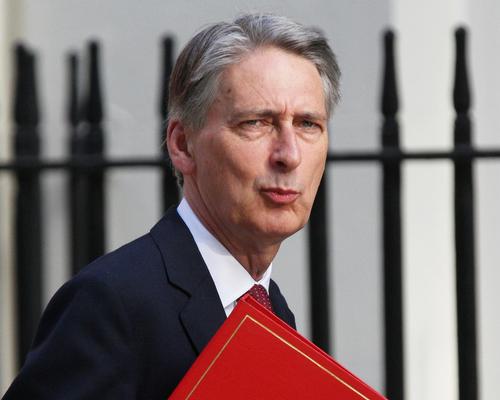30 Oct 2018
Slim pickings for leisure industry in 2018 budget
BY Tom Walker

The government's autumn budget – the last fiscal event before the UK leaves the European Union in March – has largely ignored the leisure industry, with none of the major announcements directly affecting the industry's major sectors.
While some of the new policies and initiatives will have a knock-on effect – such as improvements to transport infrastructure helping regional tourism businesses – there was a distinct lack of directives mentioning physical activity, sport, wellbeing or hospitality.
Here's our sector by sector breakdown of the 2018 Budget:
Physical activity and sport
ukactive called the budget a "missed opportunity for preventative health solutions".
Responding to the budget announcement, ukactive public affairs and research director Huw Edwards said: “While we welcome the chancellors’ confirmation of £20.5bn in further funding for NHS frontline services, the budget again failed to provide any solutions to the substantial health inequalities that exist in our society.
“The long-term solutions for the health service lie not only in frontline funding but also in stemming the tide of preventable illnesses burdening the NHS – yet this recognition is entirely absent.
“We do welcome a number of measures, including the decision to halve the contribution a small business makes to the cost of an apprenticeship to 5 per cent. This will begin to address some of the major structural issues within the Apprenticeship Levy that have impacted not only on the physical activity sector, but also many other sectors.
“The announcement of £650m to rejuvenate Britain’s ailing high streets is also welcomed, but investment alone will not attract the public back to city centres.
“That said, the Budget failed to provide the much-needed investment and regulatory change required across public health, education, sport and physical activity, and as such will only reinforce the health inequalities we face across all age groups.
“The World Health Organization recently revealed that the UK is ranked 123rd out of 168 nations for inactivity," said Edwards. "We're ranked that low for a reason. Austerity has decimated public health services, leading to facility disrepair and programme closures.
“If the Prime Minister and Chancellor are both sincere in their belief that we're at the ‘end of austerity’ then the forthcoming spending review has to place the nation’s health at its heart. Failure to do so would mark the Chancellor’s pledge to ‘deliver for future generations’ as empty rhetoric.”
Tourism and travel
Elsewhere, trade body UKinbound said it "cautiously welcomes some of the new policies", but again urged the government to reconsider its decision not to change VAT or APD regimes.
The trade association – which represents around 400 of the UK’s top tourism businesses – said the budget did include some new policies that will have a positive effect on the UK’s tourism industry.
These include the opening of e-passport gates to citizens from the USA, Canada, Australia, New Zealand and Japan, which will help to reduce queues and waiting times for these visitors.
The rollout of full fibre broadband for rural areas will also have a positive, knock-on effect, as it will help tourism businesses to connect and market their businesses more effectively to visitors.
“While there are some positives, it is disappointing that there will be no change to APD and VAT regimes at this point – even though there is strong evidence that cutting these taxes will, in fact, generate more revenue for the Government in the long term," said Ukinbound chair Mark McVay.
Hospitality, restaurants and pubs
Meanwhile, the chancellor's measures to breathe new life into the UK's high streets were branded "insufficient" by many observers.
These included John Webber, head of business rates at property specialists Colliers International.
"Most of the High Street remains at the mercy of escalating business rates - the failure to address this issue will just mean the carnage on the high street will continue," Webber said.
"The Government has clarified that the changes in business rates it proposes are targeted at small and medium-sized retail businesses – including restaurants, pubs and cafes – particularly those with a Rateable Value (RV) of between £15,000 and £51,000 per annum. Such businesses will see their bills cut by a third.
"This is all very good," said Webber, but as the Chancellor has removed the £1,000-a-year pub relief that many operators relied on – including pubs with an RV of up to £100,000 a year. So if you are a pub with an RV above £51,000 a year, you could very well be worse off from these measures."
Close Window